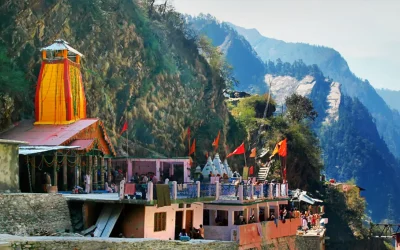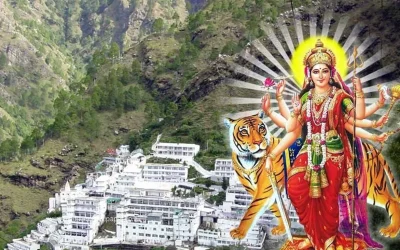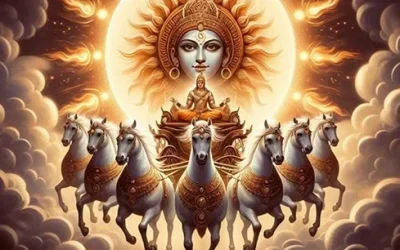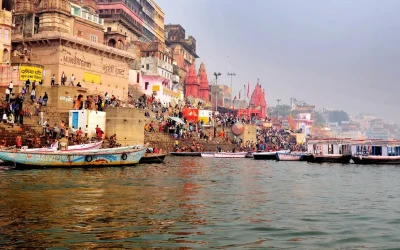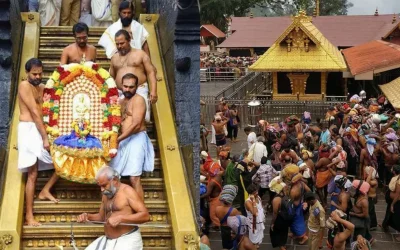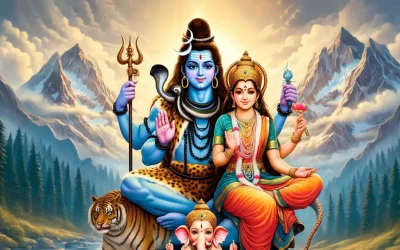Guruvayur Shri Krishna Temple: A Sacred Journey into the Heart of Krishna’s Holy Abode
Legend has it that King Janamejaya was suffering from the torment of leprosy, and he was very desperate for a cure. After performing a sacrificial ritual to destroy the snakes responsible for his father’s death, he was cursed and plagued by the disease. When he was lost of all hope, Sage Atreya advised him to seek solace at the Guruvayur Temple, the holy abode of Lord Vishnu in the form of Krishna. After ten months of unwavering devotion in this sacred temple, King Janamejaya’s leprosy was cured, and the divine grace of Lord Guruvayurappan physically and spiritually healed him.
This powerful story is just one of the many legends surrounding the Guruvayur Shri Krishna Temple, a revered sanctuary in Guruvayur, Kerala, India. Traditionally called “Bhuloka Vaikunta” (the Holy Abode of Vishnu on Earth), the ancient temple draws millions of devotees from Kerala and Tamil Nadu, making it one of the most crucial places of worship for Hindus.
Be it pilgrims on their quest for spiritual fulfilment or devotees coming to learn about India’s great religious heritage, this temple of Guruvayur offers a divine experience in terms of its impeccable history, captivating legends, and unique cultural traditions.
The Deity of Guruvayur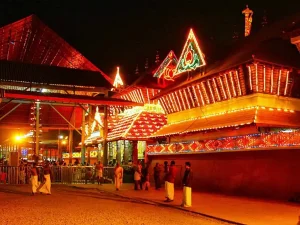
At the heart of the temple, the idol of Guruvayurappan is placed, who is the manifestation of Lord Vishnu that devotees believe was revealed to Krishna’s parents, Vasudeva and Devaki, at the moment of his birth. This image is massive, decorated with a conch (Panchajanya), discus (Sudarshana Chakra), mace (Kaumodaki), and a lotus studded with a tulasi garland. It is this four-handed form of Vishnu that is symbolic of his power to sustain and protect the universe.
The rituals and worship at Guruvayur Temple are steeped in ancient traditions, following the guidelines laid down by the 8th-century philosopher Adi Shankara. Later, in the medieval period, the Tantric master Chennas Ravinarayanan Nambudiri formalized these customs, and descendants continue to serve as hereditary priests of the temple to this day.
Festivals that Bring Guruvayur to Life
The temple hosts many colourful festivals yearly that attract thousands of devotees. The most important among them is the 10-day Kumbham festival, which begins with the flag hoisting on the Pooyam star. It sets off a cycle of prayer, song, dance, and offerings that end with the deity’s Arattu, or holy bathing ceremony.
The other notable celebration is Krishna Janmashtami, the day Lord Krishna was born. Chingam in the Malayalam calendar is a month of song, dance, and narration of the birth stories of Krishna in all temples. The Guruvayur Ekadasi in the month of Vrischikam (November-December) is especially significant as it is said to be the day Lord Vishnu opened the gates of Vaikunta for his followers.
This festival signals the new year and celebrates it with a wave of auspiciousness and prosperity. Devotees come to the temple, requesting it to make their coming year fruitful.
Sub-Deities of the Guruvayur TempleThough the central deity is Guruvayurappan, other sub-deities like Ganapathi, Ayyappan, and Bhagavathi are also highly regarded and placed in their respective temples. Bhagavathi receives special reverence, worship, and given offerings. The temple surroundings also include the temple of Nagadevathas.
Historical Significance
The temple withstood the glimpses of time. Though the myths connect the temple’s history back to the ages, historical records begin in the 17th century. The Tamil poet-saints known as the Alvars mentioned the temple in their devotional songs, making it a sacred site. Despite facing attacks and destruction during the colonial era, particularly from Dutch invaders and Tipu Sultan’s army, the temple survived and was restored to its former glory.
The 1970 fire caused major damage to parts of the temple, including the Vilakkumatham, an ambulatory corridor lined with oil lamps. The devotees’ sheer dedication ensured the temple was back to normal as soon as possible, and it remains today a strong and living testimony to the community’s faith.
Rudratheertham, The Sacred Pond and Temple Elephants
A visit to the Guruvayur Temple is incomplete without a glimpse of Rudratheertham, the temple’s sacred pond. The incredible story behind this pond is that Lord Shiva himself used to bathe on its southern bank. Since Shiva is also known as Rudra, this pond was named after him as Rudratheertham. Devotees often bathe here before entering the temple, believing it purifies their body and soul, preparing them for worship.
One of the unique attractions at Guruvayur Temple is its Punnathur Kotta, or the Anakotta (Elephant Yard). It has over 30 elephants donated by devotees, who are considered sacred and are involved in temple rituals.
One of the most renowned elephants was Guruvayur Kesavan, who spent several decades attending to the temple’s affairs. To this day, statues and stories of Kesavan are treasured in the hearts of the temple’s worshipers.
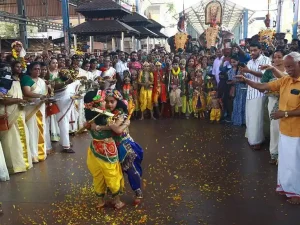
Guidelines for Visiting Guruvayur Temple: Dos and Don’ts
When visiting Guruvayur Temple, certain customs must be followed to respect the temple’s sanctity and traditions.
Dos:
- Dress appropriately: Men should wear a mundu (dhoti), while women should wear sarees, salwar sets, dhoties, or pavadas. Girls under 12 can wear gowns. Modern clothing is not allowed.
- Maintain Cleanliness: Bathe and wear clean clothes before entering the temple.
- Respect Offerings: Handle prasadam (sacred offering) and theertham (holy water) with care and reverence.
- Use Electronics Counters: Leave electronic devices like cameras and mobile phones at the paid counters outside.
Don’ts:
- Entry Restrictions: Only Hindus are allowed inside the temple.
- Prohibited Clothing: Avoid shirts, lungis, or modern attire.
- No Smoking or Spitting: Smoking, spitting, and carrying tobacco products are strictly forbidden.
- No Alcohol or Non-Vegetarian Food: Do not enter after consuming alcohol or non-vegetarian food.
- Protect valuables: Take care of your belongings while inside the temple.
Following these simple guidelines will ensure a respectful and peaceful visit to Guruvayur Temple.
Guruvayur Temple festivals in colours, sacred rituals, and ancient legends form a dedicated saga of devotion spanning the centuries. Passing through its holy halls, you would almost feel the divine energy of thousands of pilgrims before you who have found solace and peace in this sacred temple of Vishnu.
Plan your visit to Guruvayur Temple today and experience the spiritual energy of this ancient holy site!

